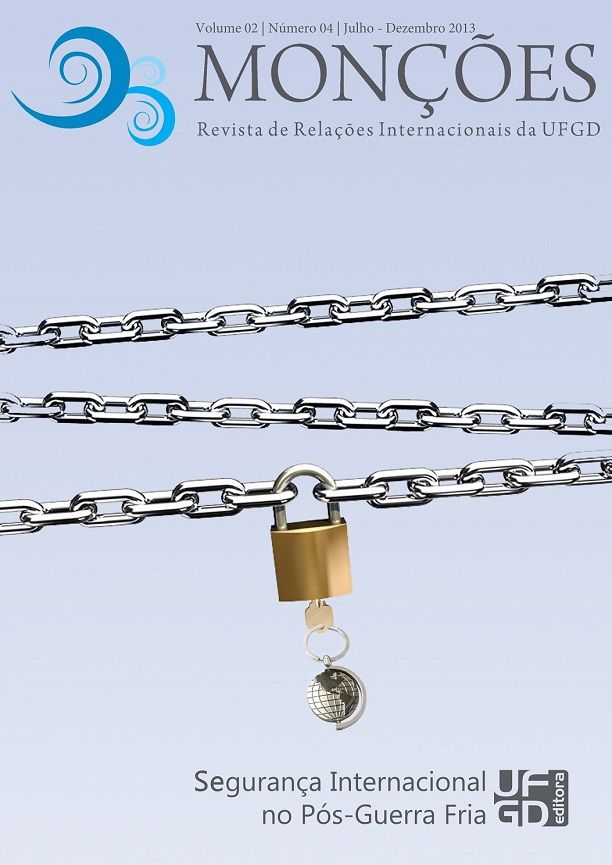Fault lines after the Cold War: the vertical expansion of the concept of security, securitization and human security
Palavras-chave:
Security. Securitization. Human Security.Resumo
The paper approaches the “vertical expansion of the concept of security” reconstructing the debate on the concept of security within the discipline of International Relations after the Cold War. Considering that security is an “essentially contested concept”, it offers a handful of comparisons between different conceptions, which provide different accounts of “broadening” security. Barry Buzan’s Securitization approach was the first to engage seriously the challenges of “broadening” security in IR. For its merits, however, Buzan’s communitarian ontology poses a problem to “broadening” security, as it reiterates the state as the gatekeeper of protection and as the authoritative site for defining existential threats. In this sense, in spite of all its overriding ambiguity, Human Security provides a better alternative for the “vertical expansion of the concept of security” than securitization. The paper, therefore, considers the respective contributions of securitization and human security to the debate on the vertical expansion of security under the light of the relationship between states and human beings.Downloads
Não há dados estatísticos.
Downloads
Publicado
2014-03-25
Como Citar
Gama, C. F. P. da S. (2014). Fault lines after the Cold War: the vertical expansion of the concept of security, securitization and human security. Monções: Revista De Relações Internacionais Da UFGD, 2(4), 12–45. Recuperado de https://ojs.ufgd.edu.br/moncoes/article/view/2805
Edição
Seção
Artigos Dossiê - Segurança Internacional no Pós-Guerra Fria
Licença
Declaração de Direito Autoral
Autores e autoras que publicam na Monções: Revista de Relações Internacionais da UFGD concordam com os seguintes termos:
- Os autores e autoras mantêm os direitos autorais e concedem à revista o direito de primeira publicação, com o trabalho simultaneamente licenciado sob a Creative Commons Atribuição-NãoComercial-CompartilhaIgual 3.0 Brasil. que permite o compartilhamento do trabalho com reconhecimento da autoria e publicação inicial nesta revista.
- Autores e autoras têm autorização para assumir contratos adicionais separadamente, para distribuição não-exclusiva da versão do trabalho publicada nesta revista (ex.: publicar em repositório institucional ou como capítulo de livro), com reconhecimento de autoria e publicação inicial nesta revista.
- Autores e autoras têm permissão e são estimulados a publicar e distribuir seu trabalho online (ex.: em repositórios institucionais ou na sua página pessoal) a qualquer ponto antes ou durante o processo editorial, já que isso pode gerar alterações produtivas, bem como aumentar o impacto e a citação do trabalho publicado, porém invariavelmente com o reconhecimento de autoria e publicação inicial nesta revista.
Política de Privacidade
Os nomes e endereços informados nesta revista serão usados exclusivamente para os serviços prestados por esta publicação, não sendo disponibilizados para outras finalidades ou a terceiros.


